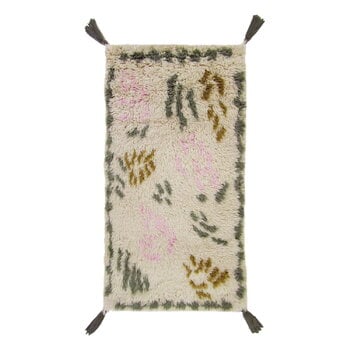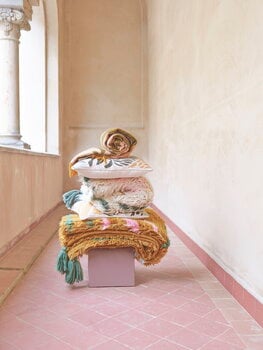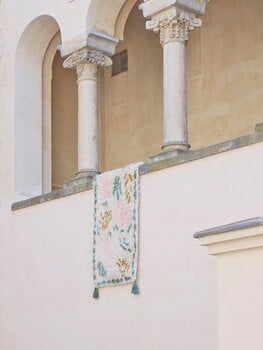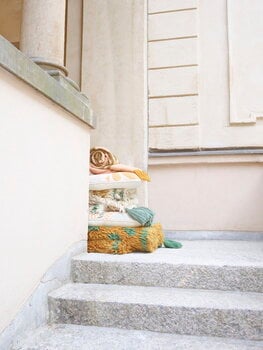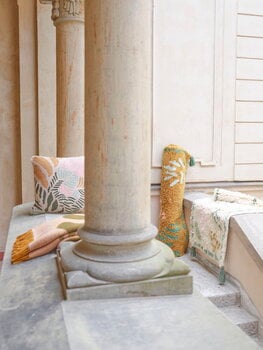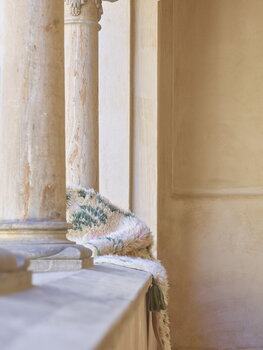Finarte’s Väre rug brings a touch of Finnish nature and ancient folklore to your home. The organic brushstrokes of the rug’s pattern evoke images of an ancient forest that vibrates with eternal life – the name Väre literally translates to “vibration” or “ripple”. Hand-knotted in India, the wool rug is finished with fun tassels on each corner.
The Väre rug is part of Finarte’s special collaboration with the National Museum of Finland: designed by ceramic and textile artist Marianne Huotari, the Väre collection is inspired by the museum building and its famous ceiling frescoes by Akseli Gallen-Kallela. Additionally, Huotari was inspired by Gallen-Kallela’s mural designs that never came to fruition – the Väre pattern is her modern interpretation of the forgotten frescoes.
